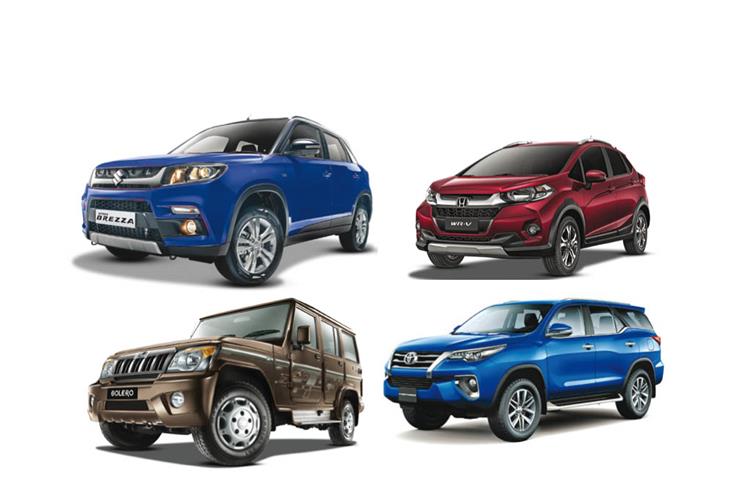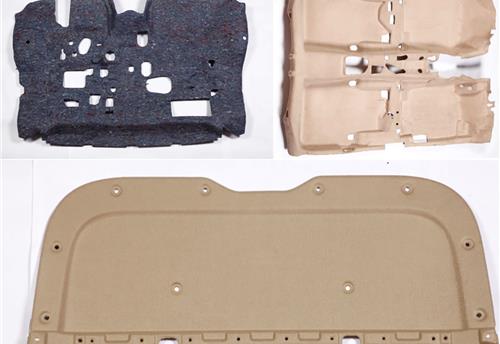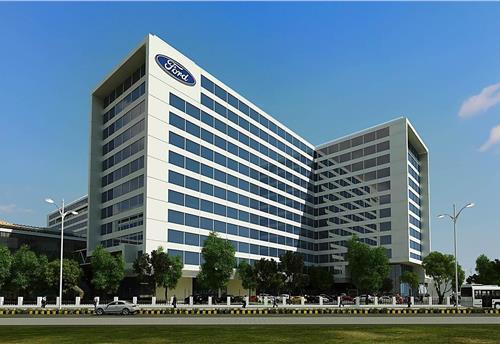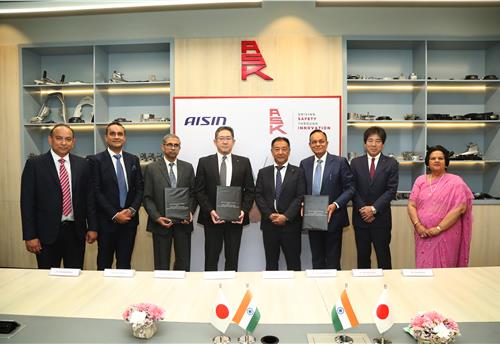GST cess blow for India Auto Inc lower than proposed 10%
While the additional cess of 2-7 percent is a dampener, it is less than the proposed 10 percent. It looks like the GST Council has considered SIAM's and automakers' strong protest against the hike.
In what can be seen to be a marginal relief to automakers in the country, the Goods and Service Tax (GST) Council, has raised the cess on medium-sized to large cars and SUVs in the range of 2 to 7 percent. There is no change for the cess on small passenger cars (1.2-litre petrol and 1.5-litre diesel), hybrid cars and 13-seater vehicles.
Following a meeting of the GST Council in Hyderabad on September 9, the GST cess on mid-segment cars has been hiked by 2 percent, for large cars by 5 percent and for SUVs by 7 percent. The revised cess kicks in from September 10.
Midsize cars: +2%
Luxury cars: +5%
SUVs: +7%
With this, the total tax incidence on midsize cars, large vehicles and SUVs now stands at 45 percent, 48 percent and 50 percent respectively.
This extent of increase is less than the 10 percent additional cess proposed in early August, raising the cess applicable (15 percent) over and above the GST slab (28 percent) on luxury cars and SUVs and taking it from 43 to 53 percent.
This had led to a strong protest from automakers across the board and a representation from industry body, SIAM, to the government citing an adverse impact on vehicle sales.
SIAM had said: “Although the clearance of the ordinance is just an enabling clause for the GST Council to be able to increase the cess, it is clearly evident that the government's intention is to increase the overall tax burden on many different categories of vehicles. This will increase the post GST price of many vehicle categories from pre-GST level and will have a negative impact on sale of such vehicle models in the market. This is a contradictory position of the government that while on the one hand it has identified the automotive industry as a sunrise sector of Indian economy, on the other hand it is being treated as a demerit product. SIAM requests the government and GST Council to reconsider increasing GST Compensation Cess on any category of vehicles in keeping with the promise of moderating the extremely high levels of taxation in the pre GST regime.”
Sales to be impacted, albeit marginally
It may be recollected that the overall passenger vehicle (PV) industry notched 9.23% year-on-year growth in FY2017, crossing the 3-million sales marak for the first time (3,046,727 units). While passenger cars sold a total of 2,102,996 units (+3.85%), the booming SUV segment recorded 29.91% YoY growth with sales of 761,997 units. The van segment too was in growth mode with sales of 181,734 units, up 2.37% YoY.
In the April-July 2017 period, the PV industry has posted 7.29% growth with sales of over a million units (1,026,655) comprising 687,086 cars (+5.15%), 276,972 SUVs (+14.98%) and 62,597 vans (+0.09%).
SIAM is to reveal the August 2017 sales numbers on September 11 and they are expected to be on the higher side, given the consumer rush to beat the GST cess hike-driven price increase.
Nevertheless, the 2-7 percent cess hike, applicable from today and coming just ahead of the festive season, will impact market sales, particularly in the SUV and luxury vehicle segments.
As a result of the increase in cess, manufacturers will be forced to reverse price cuts that were implemented when GST was introduced, thus affecting demand ahead of the festive season.
Since GST kicked in on July 1, and after the announcement of the proposed additional cess, value-conscious Indian car buyers have rushed to buy vehicles which are the most impacted. The marked rise in July and August sales numbers is proof of that.
SIAM expresses relief at new cess rates, welcomes differential taxes on hybrids
The Society of Indian Automobile Manufacturers (SIAM) has expressed relief that a GST cess of 25 percent has not been imposed across the board on all larger cars as was the apprehension.
With the new GST Cess, the taxation on midsized passenger cars have been almost restored to the pre-GST levels, while taxes on luxury cars and SUVs have been slightly moderated as compared to the pre-GST rates. Also, now there are a few more slabs of taxes on the auto industry as compared to the erstwhile excise duty structure.
A SIAM statement said, “The government has also recognised the need to encourage hybrid vehicles by creating a differential taxation on hybrid cars, which was one of SIAM’s request and this is a welcome step. However, SIAM feels that the longstanding anomaly in the taxation of 10-13-seater vehicles could have been fully corrected and these should have been fixed at a GST rate of 28 percent without any cess as these are public transport vehicles and not for personal use. SIAM hopes that this anomaly would be addressed in the future. SIAM hopes that these new cess rates will now remain stable and not be increased frequently. SIAM also hopes that now the states would not unilaterally increase the Road Taxes as now they would be receiving increased compensation through the revised cess.”
Additional GST cess takes the mojo out of luxury car sales
Autocar Professional's analysis of the luxury car market in India shows that sales grew at a rapid pace from 15,446 units in 2010 to 30,238 units in 2013, slowing down in 2014 and 2016.
The luxury car market, in developed economies, usually accounts for between 5-7 percent of the overall PV market. For India, sales of an estimated 33,280 units in CY2016 indicate it is around 1 percent of the 3-million PVs sold. The uptick in sales in the first quarter of FY2018 indicated that considerable potential was set to be tapped in the ongoing fiscal.
In 2017, with the economy showing all signs of being in good nick and consumer sentiment back on track, luxury vehicle sales were expected to accelerate. New momentum had also come in from GST rates, which had reduced taxation on luxury vehicles. As a result, luxury carmakers had expected the sector to record YoY growth in double digits in FY2017-18. That scenario now, overall, now looks bleak. The additional GST cess has taken the mojo out of the luxury car segment and has drawn stiff criticism from all luxury carmakers in India.
“The decision to increase the cess yet again is very unfortunate and totally overlooks the contribution we make to the industry and to the economy. Though the luxury car industry’s volume contribution is very low, our value-wise contribution is much higher and that has immense potential to grow even more in the future, had there been fair taxation. With this increase in cess now, prices are bound to leap back to the pre-GST regime, in some cases higher than the pre-GST regime, thus negating altogether the benefits of GST regime,” said Roland Folger, MD and CEO, Mercedes−Benz India.
"The taxes on this industry were already very high and we expected the unfulfilled potential of this segment to increase after the implementation of GST and rationalisation of taxes. Even if the rumoured cess hike of 10 percent was not concluded, prices will go up again, which is disappointing. We will need to study the impact of this hike on the buyer sentiment," Rahil Ansari, head, Audi India, said in a company statement.
Commenting on the GST Council’s 2-7 percent cess hike, Rohit Suri, president and managing director, Jaguar Land Rover India, said: “While the increase in cess will impact consumer demand, investment and job creation, we are glad that the government and GST Council took note of our concerns and somewhat moderated the increase in cess. Since the GST implementation on July 1, we were witnessing increase in demand for Jaguar and Land Rover brands and we are hopeful that this will continue in future as well."
RELATED ARTICLES
Uniproducts India targets 15% growth till FY2027, eyes new EV OEMs for NVH parts
The Noida-headquartered company, which is a leading manufacturer of roof liners, floor carpets, sound insulation materia...
Ford to build more EV software capability at Chennai tech hub
Ford Business Solutions India, which currently employs 12,000 personnel set to add 3,000 more; Ford, which is known to b...
ASK Automotive to set up JV with Aisin to sell aftermarket parts for cars
Ask Automotive will have 51% of the equity of the joint venture to be set up with Aisin Asia (Thailand) Company and Aisi...





 By Autocar Pro News Desk
By Autocar Pro News Desk
 10 Sep 2017
10 Sep 2017
 4771 Views
4771 Views









